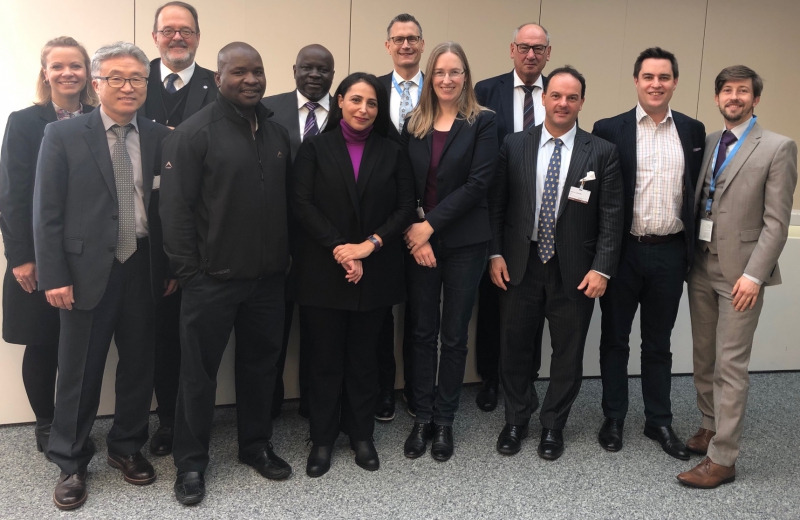As usual IPA published daily blog posts keeping those away from Geneva updated on discussions. They can be found here and give a more detailed feel for the week’s proceedings.
In summary, the second SCCR of 2018 and the 37th in total took place from 26 to 30 November and stuck to a familiar agenda with the first two days’ discussions focussed on getting the Broadcasting Treaty to a Diplomatic Conference. It remains to be seen whether that will actually happen, but the agenda item was closed with a Chair’s consolidated revised text. The discussion on Exceptions and Limitations for Libraries, Archives and Museums (or LAMs as they are called within the corridors of WIPO), consisted of a number of presentations of studies in different phases of completion. IPA took to the floor to re-iterate its position that an international legal instrument was not the best way forward and that the current range of international exceptions and limitations were more than flexible enough to cater for national solutions to perceived challenges. SCCR also saw a lot of talk of what would be discussed at the three Regional Conferences planned for next year and the Exceptions and Limitations Conference in Geneva that will take place in October (during Frankfurt Book Fair). The locations and dates of the Regional Conferences have not yet been confirmed but will be located in Latin America, Africa and Asia.
SCCR is not the only committee of potential interest to IPA, though.
The WIPO Committee on Development and Intellectual Property (CDIP) met for its 22nd session from November 19 to 23, 2018. The CDIP is responsible for implementing the 45 adopted Development Agenda recommendations and discuss IP- and development-related issues. In addition to several studies presented, the Committee discussed and approved new projects, such as a Project on Enhancing the Use of Intellectual Property in the Software Sector in African Countries, proposed by Kenya. Other issues discussed were a proposal by Mexico regarding Women and IP, the feasibility of establishing a web-forum on technical assistance and proposals on future topics to be addressed under the Agenda Item “Intellectual Property and Development”. Several Member States, such as the US, South Africa, China, Korea, Peru and Spain, participated in an interactive dialogue about technical assistance and capacity building, and exchanged views about their experiences and objectives in this regard. Other highlights of this session were the Director General’s Report on the Implementation of the Development Agenda and the Report on WIPO’s Contribution to the Implementation of the SDGs and its Associated Targets.
The WIPO Intergovernmental Committee on Intellectual Property and Genetic Resources, Traditional Knowledge and Folklore had its 38th session from 10 to 14 December, 2018. The mandate of this Committee is to undertake text-based negotiations with the objective of reaching agreement on a text of an international legal instrument, which will ensure the effective protection of traditional knowledge (TK), traditional cultural expressions (TCEs) and genetic resources (GRs). The last session was preceded by a meeting of a panel of experts, and the Committee later heard the oral reports from the Co-Chairs of the ad hoc expert group on traditional knowledge and traditional cultural expressions, Ms. Marisella Ouma (Intellectual Property Consultant, Kenya) and Mr. Michael Shapiro (Senior Counsel, Office of Policy and International Affairs, United States Patent and Trademark Office). The session was conducted through meetings of contact groups discussing specific aspects of the protection to be sought with a future international legal instrument. The groups regularly reported back to the plenary, and new draft articles were approved to be discussed at the next session. That will take place in March 18 to 22, 2019.

